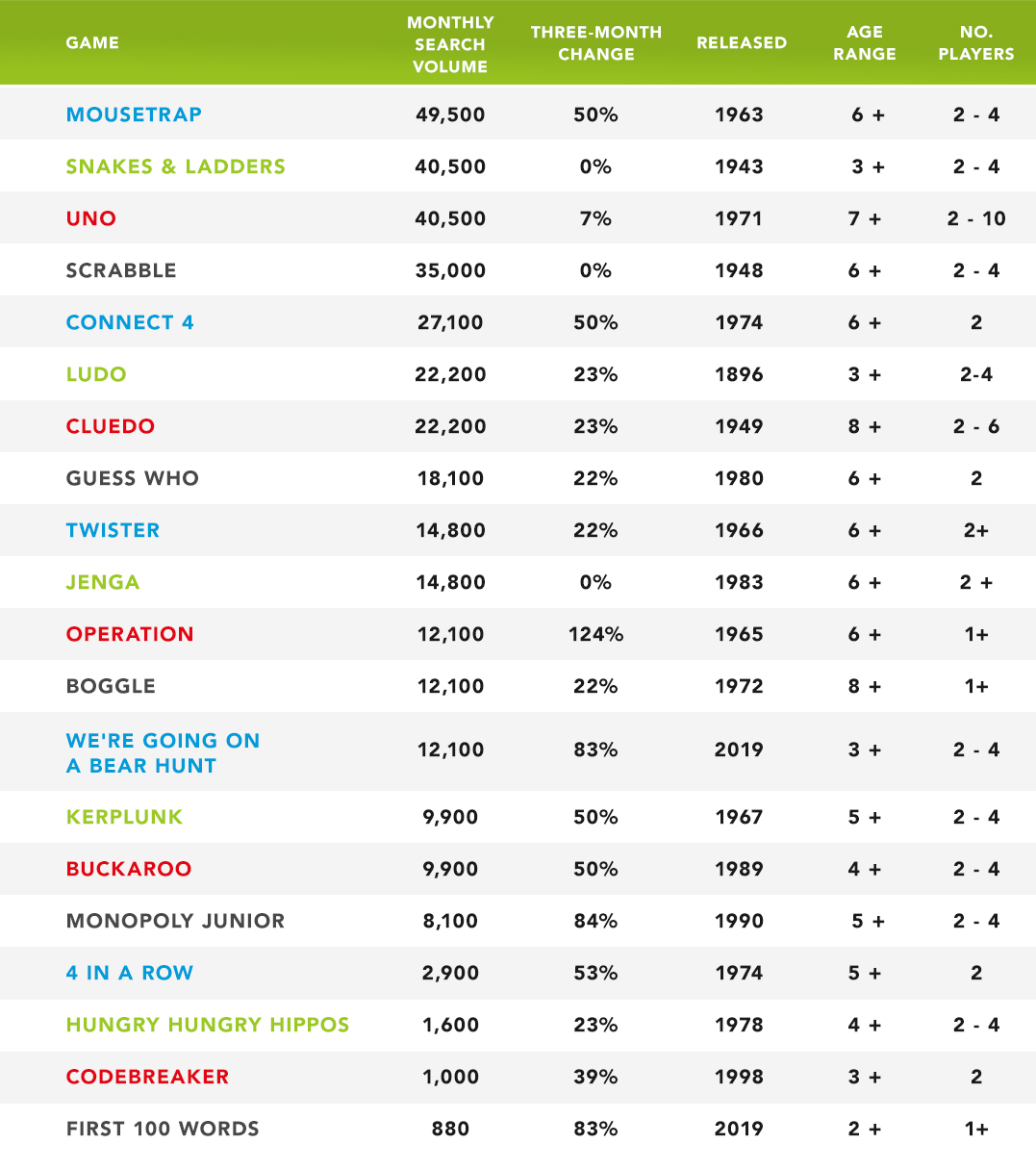Mousetrap is the most popular children’s game right now, with someone searching for this game more than once every minute in the UK! That’s according to exclusive data from educational resources supplier Hope Education on the 20 most ‘Googled’ children’s games in the run-up to Christmas.
In addition, the average age of these games is 50 years old – showing that the old games are still the best.
What does the data reveal?
According to this data, Snakes & Ladders and Uno receive a combined 70,000 Google searches a month – just under 100 searches an hour on average. Scrabble and Connect 4 complete the top 5 list of most searched for children’s games, with 35,000 and 27,000 monthly searches respectively.
This is the top 10 in full:
-
Mousetrap
-
Snakes & Ladders
-
Uno
-
Scrabble
-
Connect 4
-
Ludo
-
Cluedo
-
Guess Who
-
Twister
-
Jenga
Over the last three months, searches for Mousetrap have increased by 50%, while the games with the biggest increase in searches are Operation (124%) and We’re Going On A Bear Hunt (83%).
Out of the 20 most searched for children’s games, 95% are proven to enhance a child’s personal and social skills, while 85% are proven to improve their observation.

The expert’s view
In addition to crunching the data, Hope Education consulted an educational expert to get their thoughts on the cognitive benefits of these games.
Laura Steele is a teaching resources creator with PlanBee and was a school teacher for 11 years.
She said: “The act of playing a game helps to awaken and exercise essential cognitive skills, such as problem-solving and decision-making. For example, Connect 4 is a deceptively simple yet strategic two-player game that can help to develop a range of complex thought processes.
“Games like Scrabble, Boggle, and Articulate more explicitly help develop literacy skills such as spelling. They also enable a child to improve their vocabulary and oral description.
“In addition to cognitive development, many games can also help children to practise and refine their fine motor skills, as a certain level of hand-eye coordination and dexterity are required to move pieces around a board. Operation, Buckaroo, and Jenga are all games that can help children to develop these skills.
“Whatever game you choose for your child this Christmas, be prepared to play these games alongside them – modelling not only how to play, but how to win humbly, lose graciously, and celebrate others’ success, will provide an invaluable learning experience.”
What are the main benefits of popular children’s games?

Here are the top 5 skills that Laura says come from playing popular children’s games:
-
Decision-making: “Not only do games help children to practise this skill, but they also encourage them to assess their decisions quickly in order to keep up with the pace of the game.”
-
Patience: “The turn-taking aspect of most board games helps children to learn how to ‘wait’ and do so patiently!”
-
Anticipation: “Understanding that other people have thoughts and ideas different to our own and knowing someone will react – is a valuable life skill that a child can practise through the playing of strategic board games.”
-
Cooperation: “Most board games require interaction between two or more players. This leads to the development of this essential skill.”
-
Increased attention span: “Playing a board game can take time and concentration, and so naturally a child’s attention span will improve from doing this.”



















